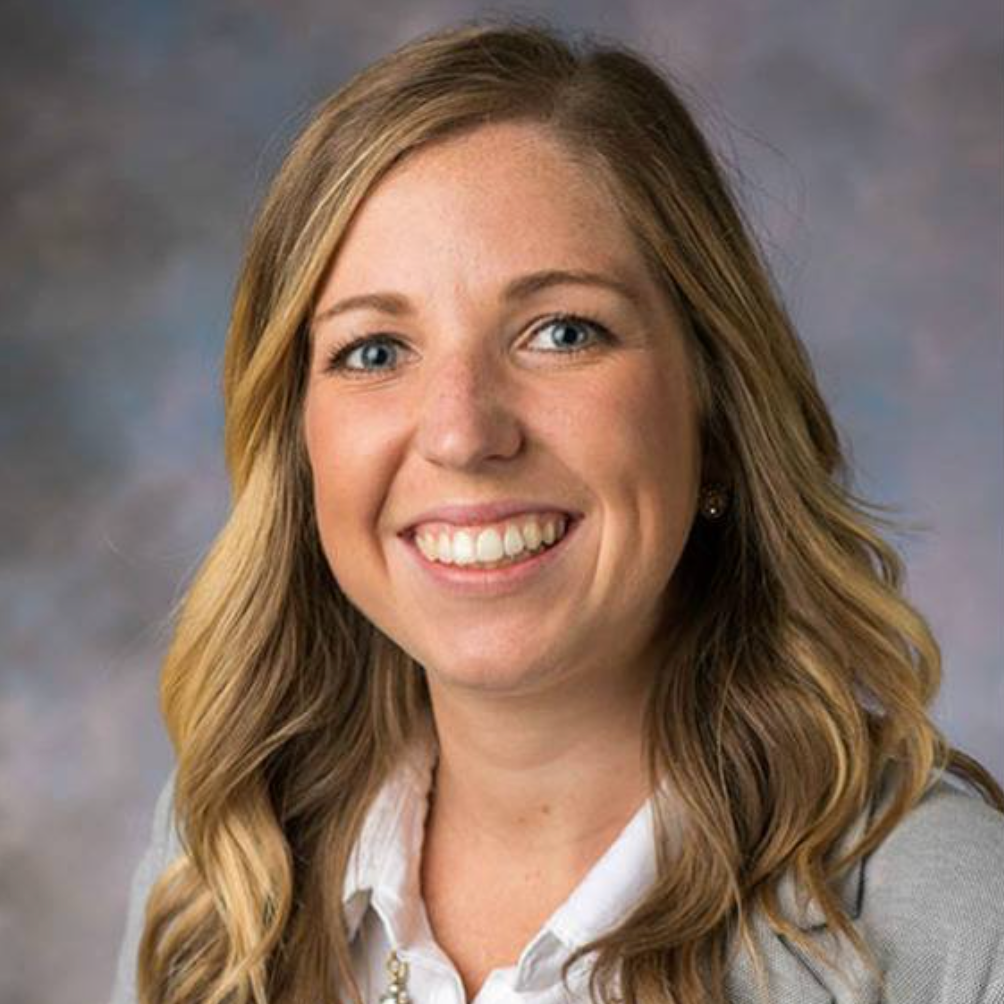Nonmedical Switch to Infliximab Biosimilar Safe, Linked to Cost Savings in Children with IBD
Inflammatory markers, infliximab levels, and physician global assessment scores remained similar when assessed pre- and post-switch to an infliximab biosimilar.
Megan McNicol, PharmD
Credit: Nationwide Children's Hospital

A one-time nonmedical switch to an infliximab biosimilar does not impact clinical remission rates, inflammatory laboratory markers, serious adverse events, infliximab levels, and antidrug antibodies in children and young adults with inflammatory bowel disease (IBD), according to findings from a recent study.1
The single-center, retrospective review included more than 50 patients at a children’s hospital who underwent an insurance-driven, nonmedical switch from the infliximab originator to a biosimilar, with results demonstrating comparable safety and efficacy to the originator but significant cost savings with the biosimilar.1
Despite the growing armamentarium of drugs to treat IBD in adults with Crohn disease or ulcerative colitis, children with IBD only have 2 FDA-approved treatment options: infliximab and adalimumab. Like most biologics, these treatments are often associated with high costs and limited patient access, both of which can be remedied with the use of biosimilar alternatives that have no clinically meaningful differences from the reference product but are often available at a fraction of the cost.2,3
“Previous studies confirm the safety of a nonmedical switch in the adult population, but the clinical effectiveness and safety of switching in children and young adults is not as well established,” wrote Megan McNicol, PharmD, of the Inflammatory Bowel Disease Clinic Team at Nationwide Children's Hospital, and colleagues.1
To address this gap in research, investigators evaluated clinical outcomes in children and young adults with IBD following a nonmedical switch from the infliximab originator to a biosimilar, further estimating the cost savings associated with this switch. The single-center, retrospective review was conducted between November 1, 2019, and March 31, 2022, and originally began as a quality improvement initiative to ensure all patients undergoing an insurance-mandated, one-time nonmedical switch to an infliximab biosimilar did so in a safe manner.1
To ensure the consistency of a safe switch, investigators created an 8-variable care index for each patient undergoing a nonmedical switch, with an aim of all patients completing at least 75% of the care index variables by 6 months post-switch. These variables included care index variables (provider education, patient education, pre-switch lab values, side effect monitoring, clinical assessment, post-switch lab values), workflow leading to the biosimilar transition, and a cost savings assessment of the wholesale acquisition cost as well as the average sales price.1
A total of 53 patients underwent an insurance-driven nonmedical switch from the infliximab originator to a biosimilar during the study period. Among this group, the mean age was 18 (Standard deviation [SD], 2.84) years, 53% of patients were female, 96% switched to infliximab-dyyb, 57% were receiving their infusions externally, and 79% had commercial insurance coverage. For the quality improvement lead-in to the retrospective review, investigators noted 88% of the care index variables were completed by patients undergoing a switch.1
Laboratory values including inflammatory markers, infliximab levels, and physician global assessment scores remained similar when assessed pre- and post-switch. Additionally, investigators pointed out no infusion reactions or antidrug antibody development occurred.1
Psoriasis-like rashes were reported by 2 patients – one patient changed medications due to the worsening of this rash on the biosimilar, and the other patient had an eruption of psoriasis 5 months into treatment on the biosimilar (infliximab-dyyb) and changed therapy to adalimumab. In total, 5 patients reported worsening GI symptoms after making the switch from the originator to a biosimilar (infliximab-dyyb) and then switched back to the originator product.1
During the study period, 379 biosimilar infusions were completed. Investigators estimated cost savings associated with the switch to a biosimilar using the wholesale acquisition cost, a commonly used pricing model reflecting the price to wholesalers before any discounts or rebates, and the average sales price, based on a national sales mix representing a more realistic cost of what an institution pays for a medication after discounts and rebates. The estimated total cost savings were $566,223 for wholesale acquisition cost and $11,260 for average sales price.1
“This study demonstrated that a one-time, nonmedical switch to an infliximab biosimilar resulted in similar clinical effectiveness for the subsequent 12 months in children and young adults with IBD with stable infliximab trough levels and without antibody development. Significant cost savings were also seen with biosimilar utilization,” investigators concluded.1
References:
- McNicol M, Abdel-Rasoul M, McClinchie MG, et al. Clinical outcomes and cost savings of a nonmedical switch to a biosimilar in children/young adults with inflammatory bowel disease. Journal of Pediatric Gastroenterology and Nutrition. https://doi.org/10.1002/jpn3.12153
- Croft NM, de Ridder L, Griffiths AM, et al. Paediatric Inflammatory Bowel Disease: A Multi-Stakeholder Perspective to Improve Development of Drugs for Children and Adolescents. J Crohns Colitis. 2023;17(2):249-258. doi:10.1093/ecco-jcc/jjac135
- US Food and Drug Administration. Biosimilar Basics for Patients. Biosimilars. October 26, 2023. Accessed February 28, 2024. https://www.fda.gov/drugs/biosimilars/biosimilar-basics-patients